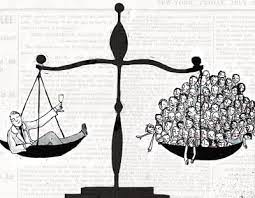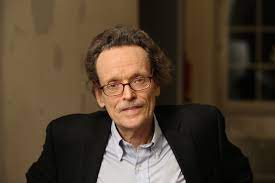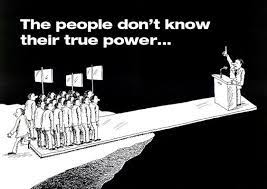By Laury Echavarria

Bringing about global justice for the worst off in the world becomes challenging due to the diverse interpretations of what equality entails. While there are globally accepted truths, the opinion of global is contrasted with obstacles as interests vary across countries, genders, religions, and preferences (Intersecting Inequalities). Given the complexity of defining equality, determining what would bring about global justice is not a straightforward task.
Despite these differences, there is a common ground: We, as human beings, share basic needs such as food, clean air, clean water, and health. Additionally, as social individuals, we are interconnected through elemental needs like money, human rights, and political needs. Philosophy serves as a tool to approach these social challenges.
Thomas Pogge and Peter Singer, two well known philosophers, present distinct views on achieving global justice for the world’s most disadvantaged populations. While both philosophers share a concern for addressing global poverty and inequality, their approaches differ in the emphasis on individual responsibilities, the role of governments, and the proposed solutions.
This essay compares similarities and differences between Thomas Pogge and Peter Singer’s Perspective on what is required to bring about global justice for the worst off in the world.

Thomas Pogge’s Perspective
Addressing Structural Injustices
Thomas Pogge’s approach to global justice centres on addressing structural injustices and the root causes of poverty. Pogge argues that citizens of affluent countries, through their governments, contribute to global poverty by engaging in exploitative trade practices. He uses the concept of a “no-questions-asked trade policy,” whereby affluent nations and organizations purchase natural resources from economically poor countries without considering the ethical implications of their governments.
According to Pogge, this trade practices provides a significant incentive for dictators to seize power in resource-rich countries, leading to oppression, corruption, and the impoverishment of citizens. Pogge states that citizens of affluent countries are not only indirectly complicit but also bear direct responsibility for global poverty. He thinks that since citizens elect their governments, benefit from the trade policy, and the governments act on their behalf, they are morally obliged to work towards abolishing this unfair system.
Pogge’s solution revolves around collective action by citizens to pressure their governments into changing trade policies. He draws parallels with historical movements, such as the campaign against the transatlantic slave trade, to emphasize that ordinary people can bring about significant change through collective efforts.

Peter Singer’s Perspective
Individual Moral Obligation through Aid
Peter Singer, on the other hand, emphasizes individual moral obligations and the duty to alleviate suffering through personal choices. Singer’s ethical framework is consequentialist and utilitarian, focusing on the well-being of individuals. Singer argues that individuals in affluent nations have a moral duty to prevent harm and promote good, irrespective of institutional structures.
Singer introduces the drowning child analogy, illustrating that if one can prevent harm at minimal cost to oneself, it becomes a moral obligation to do so. He extends this analogy to the global context, asserting that individuals in affluent nations, where resources are abundant, should donate a significant portion of their wealth to alleviate extreme poverty.
Singer’s solution is rooted in individual acts of charity, particularly through financial contributions. He argues for a moral duty to donate to effective charities working towards poverty alleviation. His utilitarian perspective prioritises maximising overall well-being, and he contends that individuals have the power to make a tangible impact by directing resources to where they are most needed.

Comparisons and Contrasts
Individual vs. Structural Focus
While both Pogge and Singer assert that global justice is a moral duty for citizens of affluent countries, their differences lie in the importance attributed to this individual role.
Pogge places emphasis on structural injustices and the role of governments in perpetuating global poverty. He believes that addressing systemic issues is crucial for achieving meaningful change.
Whereas Singer’s focus is on individual moral obligations. He argues that individuals have a duty to act independently of institutional structures, advocating for immediate and direct assistance through personal choices.
Role of Governments
Pogge sees governments of affluent countries as central players in perpetuating global poverty through unjust trade policies. He calls for citizens to hold their governments accountable and push for policy changes.
While Singer acknowledges the role of governments, his primary emphasis is on individual actions. He urges individuals to take personal responsibility for addressing global poverty, regardless of government policies.
Solutions
While both, Pogge and Singer reject the idea that global justice is supererogatory, which means that helping the worst off is a good thing to do, but not a moral obligation.
Pogge’s solution involves collective activism by citizens to pressure governments into changing exploitative trade policies, addressing the structural roots of global poverty.
On the other hand, Singer proposes immediate individual action through charitable donations to effective organizations. His solution is more immediate and does not necessarily require systemic changes.
Philosophical Framework
By the same token, Pogge and singer share views on the moral complicity of citizens of affluent countries in causing extreme poverty in poorer ones.
However, Pogge’s perspective draws on negative duties, particularly the duty not to harm. He sees the trade policies of affluent nations as violations of this duty.
In contrast, Singer’s utilitarian framework focuses on positive duties, emphasising the obligation to maximise overall well-being. His approach prioritises immediate actions that lead to the greatest good.
In conclusion, while both Pogge and Singer share the goal of addressing global poverty, believing that morality should be impartial, and rejecting the idea that global justice is supererogatory, their approaches differ in terms of focus, responsibility attribution, and proposed solutions.
Pogge advocates for collective action to reform structural injustices, particularly trade policies, whereas Singer emphasizes individual moral obligations and immediate aid through personal choices. The debate between these perspectives raises questions about the interplay between individual and systemic responsibilities in achieving global justice for the worst off in the world. Perhaps a solution may lie in a balanced approach, we should look to combine individual efforts and governmental enforcement.
